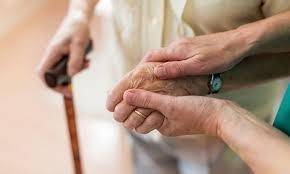Dear Savvy Senior,
I never thought about becoming an organ donor until my brother died of kidney failure last year. But at age 78, I would like to know if I’m too old to be a donor, or if they would even use my organs if I were to die from COVID-19. What can you tell me?
Potential Donor
Dear Potential,
There’s no cutoff age for being an organ donor. Anyone, regardless of age or medical history, can sign up. In fact, there are many people well up into their 80’s that donate. The decision to use your organs is based on health of the organ, not age. So, don’t disqualify yourself prematurely. Let the doctors decide at your time of death whether your organs and tissues are suitable for transplantation.
Regarding the COVID-19 part of your question, as of right now, the Organ Procurement and Transplantation Network (OPTN) does not recommend transplantation of organs from donors known to have the virus. So, if you were to contract the coronavirus and die, your organs would probably not be used, however, this may change as treatments are developed.
Here’s what else you should know about becoming a donor.
Donating Facts
In the United States alone, more than 112,000 people are on the waiting list for organ transplants. But because the demand is so much greater than the supply, those on the list routinely wait three to seven years for an organ, and more than 7,000 of them die each year.
Organs that can be donated include the kidneys, liver, lungs, heart, pancreas and intestines. Tissue is also needed to replace bone, tendons and ligaments. Corneas are needed to restore sight. Skin grafts help burn patients heal and often mean the difference between life and death. And heart valves repair cardiac defects and damage.
By donating your organs after you die, you can save or improve as many as 50 lives. The United Network for Organ Sharing maintains the OPTN, a national computer registry that matches donors to waiting recipients.
Some other things you should know about being an organ donor are that it does not in any way compromise the medical care you would receive in a hospital if you are sick or injured, nor does it interfere with having an open-casket funeral if you want that option. And, most major religions in the United States support organ donation and consider it as the final act of love and generosity toward others.
How to Donate
If you would like to become a donor, there are several steps you should take to ensure your wishes are carried out, including:
Registering: Add your name to your state or regional organ and tissue donor registry. You can do this online at either OrganDonor.gov or DonateLife.net. If you don’t have Internet access, call Donate Life America at 804-377-3580 and they can sign you up over the phone.
Identify yourself: Designate your decision to become an organ donor on your driver’s license, which you can do when you go in to renew it. If, however, you don’t drive anymore or if your renewal isn’t due for a while, consider getting a state ID card – this also lets you indicate you want to be a donor. You can get an ID card for a few dollars at your nearby driver’s license office.
Tell your family: Even if you are a registered donor, in many states, family members have the ultimate say whether your organs may be donated after you die. So, clarify your wishes to family. Also tell your doctors and indicate your wishes in your advance directives. These are legal documents that spell out your wishes regarding your end-of-life medical treatment when you can no longer make decisions for yourself. If you don’t have an advance directive, go to MyDirectives.com where you can create one for free.
Send your senior questions to: Savvy Senior, P.O. Box 5443, Norman, OK 73070, or visit SavvySenior.org. Jim Miller is a contributor to the NBC Today show and author of “The Savvy Senior” book.

